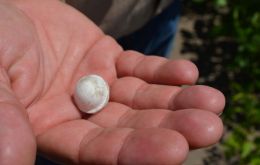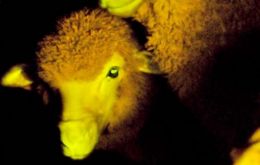MercoPress. South Atlantic News Agency
Tag: Genetically Modified
-
Saturday, June 8th 2019 - 08:08 UTC
US Department of Agriculture confirms discovery of unapproved GM wheat plants

The U.S. Department of Agriculture has confirmed the discovery of unapproved, genetically modified (GM) wheat plants growing in an un-planted agricultural field in Washington state.
-
Friday, April 12th 2019 - 21:33 UTC
Instead of agrochemicals, Uruguay uses wasps to develop non-genetically modified soy

In Uruguay, non-genetically modified soy (GMO) soy is being developed in order to compete in a market saturated by the volume of crops in the region. Nevertheless, the country’s government hopes Uruguayan soy will stand out for its quality rather than for the volume of harvests motivating soy producers to use “biological controls” to combat pests.
-
Thursday, March 15th 2018 - 08:59 UTC
UK expert in Montevideo to promote British sheep genetics in Uruguay

A British expert in export certification is visiting Uruguay with the aim of promoting the regeneration British genetics in Uruguayan flocks. In Uruguay there are currently four sheep breeds of British origin: Suffolk, Romney Marsh, Hampshire Down and Southdown, in addition to British Texel.
-
Thursday, April 25th 2013 - 21:26 UTC
Uruguay GM lambs which have a luminescence reaction when exposed to UV conditions

Uruguay has a ‘flock’ of nine six-month ‘brilliant’ lambs which behave as any other sheep but are really genetically modified and are planned to help with medicine research. They were born in a farm belonging to the Animal Reproduction Institute of Uruguay (Irauy) a non profit organization connected to the Genetically Modified Animals Unit from the Pasteur Institute, a branch in Montevideo of the renowned French scientific organization.
